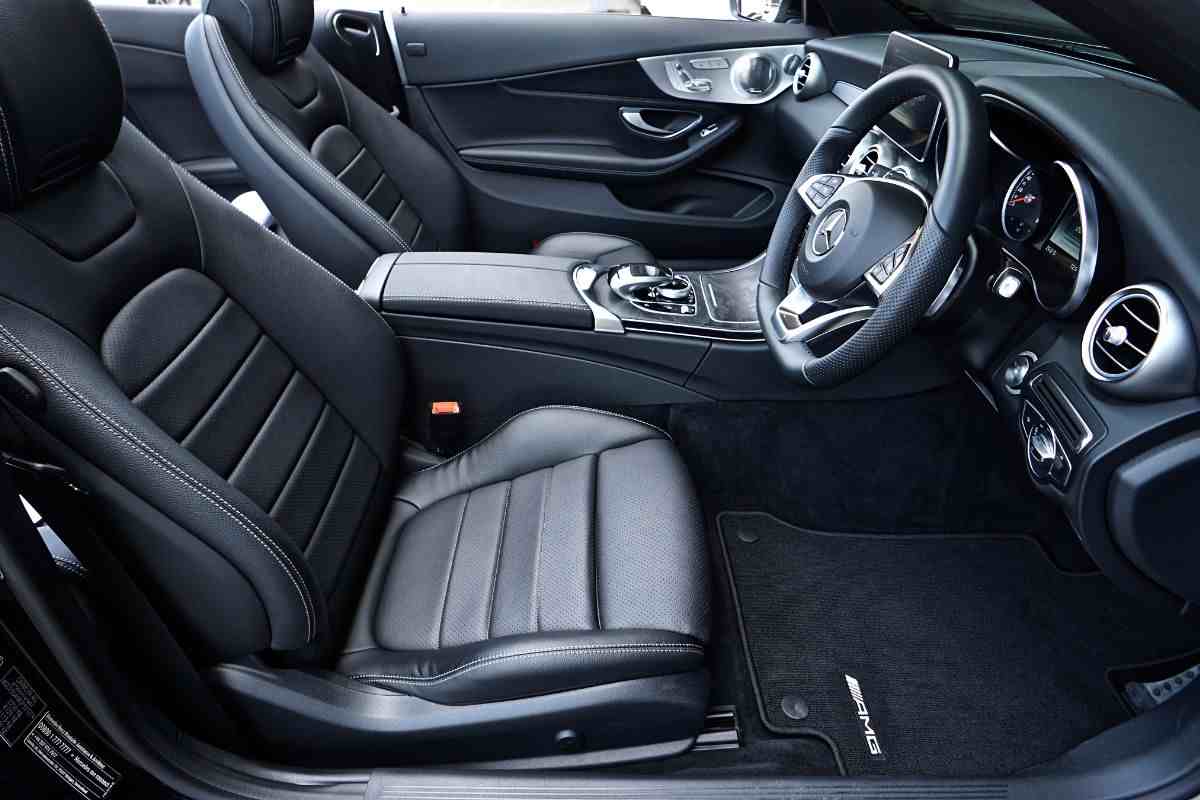#diesel #engines #Poland #Minister #car #taxes
Paweł Rygas (Interia): You have recently traveled to Brussels with the Deputy Minister of Funds and Regional Policy, Jan Szyszko. Was the issue of taxes on combustion cars on a knife edge? Ultimately, as we know, the introduction of a cyclical tax on combustion cars was avoided, but it was not an easy negotiation?
Krzysztof Bolesta (Ministry of Climate and Environment): The situation is as follows. We found a cuckoo’s egg hidden in the KPO. A milestone on which many different payments depend. For trams, electric buses…
PR: Let’s be clear, it’s not like we’re dealing with a directive that we can somehow delay. If we do not implement the provisions contained in the KPO, accepted by the previous government, we will simply withhold the payment of further money.
KB: Yes, exactly. Each of these milestones is valued and results in the withholding of KPO funds. So completely ignoring these provisions was not an option. Unless the government agrees that we will donate the funds. So we joined hands with the Ministry of Funds and tried to negotiate it with the Commission. I can only say that the discussions with the committee were very constructive.
In KPO we found two things: registration tax and car ownership tax. Let’s start with the registration tax. This was a topic on which we quickly agreed with the Commission that we do not need to introduce a new tax, but we will modify the excise tax in such a way that the “polluter pays” principle will be introduced. This means that taxes on new and used cars registered for the first time in Poland will simply be different – mainly due to the Euro standard.
PR: So this tax will also apply to new vehicles?
KB: Yes. Just as today, excise tax is also paid for new vehicles, and the new tax replacing it will also be paid. We agreed that this is how we will reform it, i.e. there will be no new fee, only a reform of the existing tax (excise duty).
PR: I understand that the type of fuel will also affect the new excise tax?
KB: I think so. However, work on the details of this reform is still ongoing. It should be remembered that the “polluter pays” principle has preferences regarding the type of fuel. Emissions from gasoline are mainly CO2. Diesel, on the other hand, has less CO2 but more substances harmful to health, such as nitrogen dioxide. Therefore, from the point of view of our ministry, diesel should be taxed more heavily. But now the ball is in the court of the Minister of Finance. We are waiting for the project.
PR: So the final end of the diesel engine?
KB: Poland has never been among the top countries with the most diesels. If I remember correctly, the passenger car fleet never exceeded 50%. diesels. In France, Spain and Portugal, it is still nearly 60 percent, and a few years ago it was even more.
PR: Isn’t there a risk that changes in excise duty will result in an increase in the prices of new vehicles?
KB: They should not, because the parameters of the reformed excise tax agreed upon by the Ministry of Climate and Environment and the Ministry of Finance include the introduction of the “polluter pays” principle to this tax. This means that new cars are safe because they already meet the applicable minimum emission standards.
PR: So I understand that drivers should not believe in any calculators and similar sensations that appear on the Internet from time to time?
KB: Exactly. At the moment, there is no formula developed yet, so “we don’t know anything”.
PR: Can you provide more details about the announced subsidies for electric cars?
KB: We are talking about the details with the European Commission and they have not been agreed yet. At this stage, there is consent to introduce this mechanism financed from KPO funds. The structure will be as follows: there will be a basic subsidy and we are currently agreeing on its level. Additionally, there will be percentage bonuses for scrapping and – if the buyer proves a certain level of income – we want the state to pay more to the less wealthy.
PR: What is the procedure for developing new regulations? The Committee of the Council of Ministers accepts the plan, we send it to Brussels and what next?
KB: A bit different. We have been negotiating with the Commission at the working level for several long weeks and we have a clear-cut agreement that has been adopted by the Council of Ministers.
PR: Can the European Commission disagree with what the Council of Ministers has adopted? Because this is – I understand – a Polish proposal?
KB: This is a proposal, but the Commission agreed to submit “something” in this form to the Council of Ministers.
PR: So these are the formulas already pre-approved by the EC?
KB: Yes, exactly. It may be hard to describe, but there is agreement on what it should look like, this milestone. Once the Council of Ministers gives its consent, we return to the European Commission and will refine further elements. The European Commission knows what is in our proposals and we have pre-agreed on it.
PR: But the deadlines included in the KPO are unsustainable anyway. The registration fee, according to the KPO, was to come into force in the fourth quarter of this year.
KB: Yes, in the KPO revision these terms are also adjusted to reality, because the social sensitivity of this reform meant that no one worked on it for many months. And because of this, the project has been delayed so much that now it needs to be made more realistic.
PR: And when can we expect specifics?
KB: First, the Ministry of Finance must include the project in the government’s work program. In accordance with the KPO commitment, the reformed excise tax should enter into force in the first quarter of 2025.
PR: Just out of curiosity, the second tax, which was fortunately avoided, was supposed to apply only to cars or more broadly: motor vehicles?
KB: During negotiations with the Commission, we first managed to narrow down that these were passenger cars.
PR: And isn’t it partly the case that Polish drivers were saved by our homely mess in CEPiK? Because we have a huge problem when it comes to the quality of data in the Central Register of Vehicles and Drivers.
KB: No. We used different arguments. among others such that such a tax would have no impact on the emissions of cars. It would just be another tax. In my opinion, one way or another, we need to work with the Ministry of Digital Affairs to improve the quality of CEPiK, because over the years it has been improved to some usability, but in fact, we still have a problem with it. But we worked very hard to ensure that there would be no new tax on combustion cars.
PR: Referring to CEPIK. The issue of SUVs, I mean, of course, the famous interview for “Rzeczpospolita”, I understand that there is no tax on such cars and there was no tax on the table at all?
KB: No, there isn’t (laughter). My reference to this resulted from the French example, which is neither a law nor a tax. Paris simply has the option to introduce fees for heavier cars that are multiples of normal ones.
PR. That’s right – heavier cars. But the data in CEPiK do not allow us to…
KB: Yes. Because there is no word “SUV” there. Drivers quickly became afraid that something would hit them, but such a tax targeting a specific fleet segment was not considered.
PR: Are there any planned changes to the Electromobility Act regarding, for example, the operation of clean transport zones? What I mean is: about the famous issue of window stickers and mutual respect for them by individual cities. WHO announces stricter standards, so the number of cities in which clean zones will have to appear may be greater than today. In such a case, we come back to the problem that theoretically, when frequently driving between Warsaw, Krakow or Wrocław, I will have to have several such stickers on my windshield, which is neither safe nor ecological. Is there a chance that local governments will respect each other’s limitations?
KB: There is a regulation in the works, we have sent a sticker template for further work, so in my opinion it is already unified. But knowing Krakow and Warsaw and their animosities, I think they may not respect each other’s labels, despite the law (laughter). This is, of course, a joke, but it is worth remembering that there will actually be new air quality standards in the EU. However, it is also difficult to relate today’s emission situation to these new standards, because when we will verify their compliance with reality, it will be 2030.
We work very hard in the ministry to improve air quality and it is my personal ambition that the air be better every year. And therefore, not only that not more cities fall into these categories, but maybe fewer. However, Warsaw will have a zone soon, from July, and I think Kraków will also decide to return to the zone. Among the cities with violations, Katowice and Wrocław are still left, and I think that there is already some thought as to how to approach the issue of the zone. We are working on changes to the act, they are to come into force in the first quarter of 2026, so – de facto – these cities still have time until mid-2025 to start seriously dealing with the issue of zones.
PR: When will the new sticker for clean transport zones be in force?
KB: We want the new sticker design to be available in Warsaw from July 1.
PR: Finally, you were the founder and vice-president of the Electric Vehicle Development Foundation. How do you feel about Izera today? What do you think when you hear Izera?
KB: I hear a lot of different information that is not entirely true or verified. First of all, this was never a project that was embedded in the KPO. Ownership supervision is provided by the Ministry of State Assets, the Ministry of Climate and Environment has never had authority over this project. During the PiS era, he was at the Chancellery of the Prime Minister, and now he is in MAP. Does it make sense? I think it’s worth having the market verify this. This project should begin this year if they expect any commercial success.
PR: Do you think the Chinese will withstand this verification by the Ministry of State Assets?
KB: This is one of the most patient nations in the world (smiles).
PR: So if someone is counting on Izera, they should be optimistic?
KB: He should keep his fingers crossed for a positive verification of the project by the Ministry of State Assets.
Thank you for the conversation.
Video
“Event Guest”. Krzysztof Gawkowski was a victim of fraud. “Many people are in the same situation” Polsat News










